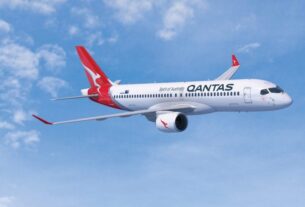Travel has long been a way for people to experience new cultures, relax, and create lifelong memories. However, for families and individuals with autism, planning and embarking on a vacation can present unique challenges. The unfamiliar environments, sensory overload, and unpredictable routines can make traveling a daunting experience. Fortunately, a growing trend is reshaping the travel industry: autism-certified destinations. These destinations are designed to cater to the needs of individuals with autism, making travel more accessible and enjoyable for neurodiverse families. What might seem like small accommodations have a significant impact, and for many families, they are changing the face of travel.
Understanding Autism and Travel Challenges
Autism spectrum disorder (ASD) affects individuals in varying degrees, often influencing how they perceive and interact with the world. Sensory sensitivities, communication difficulties, and preference for routine are just a few of the common characteristics of those on the autism spectrum. For many families, these traits make typical vacation activities like visiting amusement parks, dining out, or navigating airports stressful and overwhelming.
Sensory Overload in Travel
Traveling often involves exposure to new environments with loud noises, bright lights, and crowded spaces. For someone with autism, these sensory stimuli can lead to overstimulation, anxiety, or even meltdowns. The unpredictability of new surroundings and unfamiliar routines can further heighten stress, making it difficult for individuals with autism to enjoy typical travel experiences.
Communication and Social Interactions
Individuals with autism may face challenges with communication, whether it’s difficulty in verbalizing needs or understanding social cues. In high-pressure or unfamiliar situations, these challenges can become even more pronounced, leading to anxiety or frustration. Families may find themselves struggling to explain their child’s needs to staff at hotels, restaurants, or attractions, which can complicate their vacation experience.
Autism-Certified Destinations: A Game Changer
In response to these challenges, a number of travel destinations have recognized the need for inclusivity and accessibility for neurodiverse travelers. Many are now undergoing specialized training and earning certifications to become autism-friendly. These certifications typically involve educating staff, adjusting environments, and providing resources specifically for individuals with autism and their families.
The Role of the Certified Autism Center™ (CAC)
The Certified Autism Center™ (CAC) designation is a key factor in this movement. Awarded by the International Board of Credentialing and Continuing Education Standards (IBCCES), the certification requires travel destinations and service providers to undergo comprehensive training to better understand and accommodate the needs of autistic travelers. From amusement parks to hotels, airports, and even entire cities, the number of CAC-certified establishments is growing.
Key Features of Autism-Certified Destinations
Autism-certified destinations offer several accommodations designed to reduce sensory overload, ease communication challenges, and provide a welcoming atmosphere for individuals with autism. Some of the most common features include:
- Sensory-friendly spaces: Many CAC destinations offer quiet rooms or sensory-friendly zones where individuals can take a break from the overwhelming stimuli of their surroundings. These spaces are crucial for calming down and resetting.
- Staff training: Employees at these destinations are trained to understand the specific needs of individuals with autism. They learn how to communicate effectively, respond to potential sensory issues, and handle difficult situations with patience and empathy.
- Visual guides and social stories: These are often provided to help individuals with autism better understand what to expect during their visit. Visual guides offer step-by-step information about what they will encounter, while social stories explain typical social interactions and behaviors, reducing anxiety about the unknown.
- Priority lines and scheduling accommodations: Many autism-friendly destinations offer services such as sensory-friendly time slots or fast-track passes for attractions, allowing individuals to avoid long lines and crowded spaces, which can be overwhelming.
Examples of Autism-Certified Destinations
Across the globe, more travel destinations are embracing the certification process to make their services inclusive for everyone. Here are a few notable autism-certified destinations that are leading the charge.
1. Sesame Place, Philadelphia, USA
Sesame Place was the first theme park in the world to become a Certified Autism Center. Located in Philadelphia, the park offers a variety of accommodations, including quiet rooms, noise-canceling headphones, and staff trained to assist individuals with autism. The park also provides a detailed sensory guide that rates the intensity of each ride and attraction, helping families make informed decisions about their visit.
2. Beaches Resorts, Caribbean
Beaches Resorts in Jamaica and Turks & Caicos have earned the CAC designation by providing autism-friendly accommodations. The resort offers a dedicated “Beaches Buddy” program, where certified caregivers are available to assist families with neurodiverse children throughout their stay. In addition to sensory-friendly activities, the resort provides gluten-free and casein-free food options to accommodate dietary restrictions often associated with autism.
3. The Palm Beaches, Florida, USA
The Palm Beaches region in Florida has taken a community-wide approach to autism certification. With multiple hotels, restaurants, and attractions throughout the area earning the CAC designation, this destination has become a haven for neurodiverse travelers. Sensory-friendly accommodations and trained staff are available across a wide range of services, making the region one of the most autism-friendly destinations in the U.S.
4. Aquarium of the Pacific, California, USA
As one of the largest aquariums in the U.S., the Aquarium of the Pacific in Long Beach, California, has become a leader in sensory-friendly attractions. The aquarium offers designated sensory-sensitive days with reduced noise levels, quiet zones, and additional accommodations for families with autistic children. The aquarium’s efforts to create an inclusive environment have made it a popular choice for families looking for an autism-friendly outing.
5. LEGOLAND, Florida, USA
LEGOLAND Florida offers a variety of autism-friendly services, including quiet rooms, sensory guides, and trained staff members. The park has worked closely with the IBCCES to ensure that every visitor feels welcomed and supported. LEGOLAND’s commitment to inclusivity makes it a favorite destination for families with neurodiverse children.
The Impact on Families
For families with neurodiverse children, these autism-certified destinations are more than just vacation spots; they represent a significant shift in the travel industry’s recognition of their needs. Many parents of autistic children have expressed relief and gratitude for these accommodations, noting how transformative they can be for both the children and the entire family.
One mother described her experience at an autism-certified destination: “It seems like a simple thing, but it means a lot. For us, being able to travel to a place where our child is understood and supported makes all the difference. The staff knew exactly how to help, and it took so much of the stress away.”
For many families, the fear of judgment and misunderstanding often prevents them from enjoying a vacation. Autism-friendly destinations eliminate those worries, allowing families to relax and create memories without constantly feeling on edge.
Future of Autism-Friendly Travel
The success of autism-certified destinations has spurred a broader movement within the travel industry. More hotels, resorts, theme parks, and attractions are seeking autism certification, recognizing the importance of inclusivity and the value of catering to neurodiverse travelers. Some airlines and airports are also joining the effort by offering sensory-friendly airport experiences, pre-boarding tours, and priority seating for families with autistic children.
This growing trend shows no signs of slowing down, with more destinations striving to create environments where all individuals, regardless of their neurodiversity, can enjoy travel. Autism certification not only enhances the travel experience for individuals with autism but also fosters greater awareness and empathy throughout the industry.
Bottom Line
Autism-certified destinations are transforming the way families with neurodiverse members experience travel. By providing sensory-friendly environments, specially trained staff, and a range of accommodations, these destinations offer much-needed relief to families who may otherwise struggle with vacationing. While the changes may seem small to some, they have a profound impact on the lives of individuals with autism and their families. As the movement continues to grow, it is likely that more destinations will follow suit, making the world more accessible and inclusive for all.





